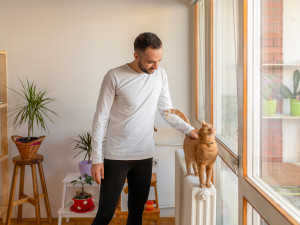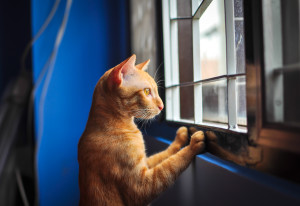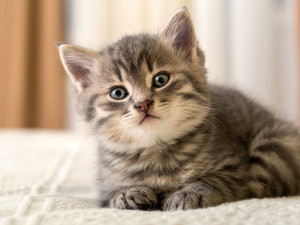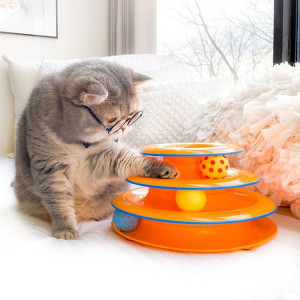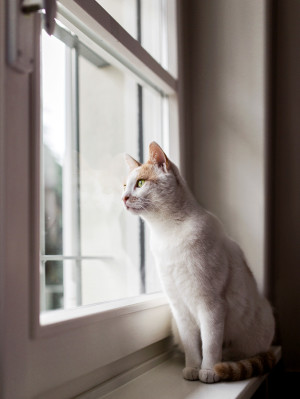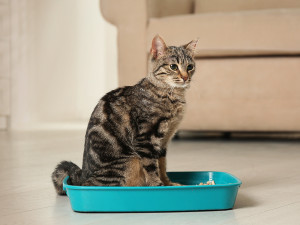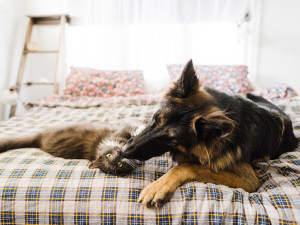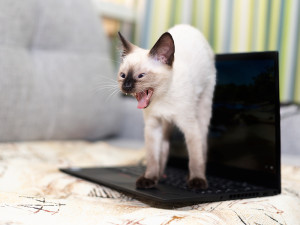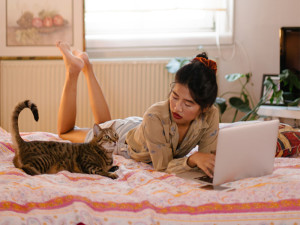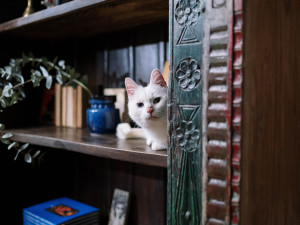How Long Can Cats Be Left Alone?
Believe it or not, they miss you when you’re gone.
In This Article:
Factors to Consider Before Leaving Your Cat Alone How Long Can You Safely Leave Your Cat Alone? What Does Your Cat Need If Left Alone? Do Cats Get Lonely? What to Do When You Go on Vacation Frequently Asked Questions
Summer is coming, which means longer days, warmer weather, and a well-earned vacation. Although upcoming time away from home is something most people look forward to, for many pet parents, this also comes with the stress of finding reliable pet care while you’re gone.
Dogs will often require a boarding facility or a dog walker, but many cat parents often ask themselves, How long can I leave my cat home alone? The answer to this is definitely cat-specific, and depends on many different factors. Here are some tips to ensure your kitty is safe and content while you’re out having some fun in the sun.
Factors to consider before leaving your cat alone
Kitty parents can attest to the fact that no two cats are alike. So, making the decision to leave your cat home alone for an extended period of time will depend on several factors, including:
How much do you spend on your pet per year?
Age
Illness
Medical needs
Their personality
Season
Other pets in your home
How long can you safely leave your cat alone?
Cats of different ages can be left alone for varying periods of time. In general, healthy, adult cats greater than a year of age can be left at home for 24 to 36 hours, as long as they have food, fresh water, and a clean litter box available.
Kittens
Kittens often require more attention, as well as more frequent feedings depending on their age. Socializing kittens starting from as young as possible is important as they mature to avoid unwanted behaviors. Older kittens can also be a bit mischievous, so making sure the environment they are in is free of hazards, toxins, or items that can fall on them is especially important. For kittens younger than a year, it is best to have someone check in on them several times a day, if possible.
Elderly cats
Elderly cats may require more frequent monitoring, especially to ensure they are eating well and not having any issues while you are gone. Believe it or not, cats can become lonely and at times depressed when left alone for longer periods of time. However, some cats are perfectly content with their personal space. Knowing your cat’s personality will help you make a decision here.
Cats with health problems
Cats with certain health conditions may make it tricky to leave them home alone for extended periods of time. For example, if your cat is on medication, this might dictate how often they need a check-in. If you’re having someone visit, make sure they are comfortable administering medications and identifying if there’s a problem.
Missed doses of medications can be detrimental, depending on the ailment. A discussion with your veterinarian regarding your cat’s specific needs is a great idea. They may also help you arrange care from experienced veterinary professionals or have a list of trusted pet sitters.
What does your cat need if left alone?
If leaving your cat home alone is unavoidable, it is best to make sure they have the following items available to them:
Food
Water
Clean litter box(es)
A comfortable area to rest
A pet camera might be a good investment or consideration for when you leave your kitty alone. This can help you see if there are any issues, and arrange for a visit if there are any concerns. There are also many options for keeping your cat entertained while you are gone — cat TV, interactive cat toys, and hanging a bird feeder outside your window are just a few ideas! Ensure windows are closed and secured to prevent an excited cat from falling.
Do cats get lonely?
There is a misconception that cats are independent beings who love their personal space. But most cat parents can vouch that many cats are the opposite. They crave companionship and can form strong bonds with their people and other animals in the home, so it’s natural for your best friend to miss you and feel lonely when you’re gone, especially for longer periods of time.
Signs that your cat may be feeling lonely can include increased vocalization, changing in eating or grooming habits, clinginess, destructive behavior, or withdrawal. If you are away often and you believe your cat is experiencing signs of loneliness, consider a cat sitter to check in on your kitty, or even stay in your home. Some people consider adopting another cat to provide companionship, however this decision isn’t for every person or every cat!
What should you do when you go on vacation or leave for the holidays?
When it’s time for a getaway, what is best for your kitty? The answer varies depending on your cat’s personality and individual needs. Some people will opt for a pet sitter who will come visit or even stay at your home to provide companionship and care for your cat while you’re away. This is a great option for social cats who warm up to new people easily, or if the pet sitter is a known friend or family member. This is also a great option for kitties who get stressed when they leave their home.
Cat boarding
If an at-home cat sitter is not an option, there are also cat boarding facilities. It’s a good idea to visit the facility to see where your cat will be staying and make sure they won’t be stressed. This is especially important if your cat does not like other cats or gets stressed when away from home. It’s recommended that your they are up-to-date on vaccines before heading to a boarding facility, especially if there are other cats around.
FAQs (People also ask):
Does my cat have separation anxiety?
If you are gone for a long period of time, it is possible that your cat may demonstrate signs of separation anxiety, such as changes in appetite or grooming habits, increased vocalization, destructive behavior, or withdrawal. If you are concerned that they are showing signs of separation anxiety, it’s best to have a conversation with your veterinarian.
Should I get a cat sitter?
A cat sitter can be a great option for when you need to leave your cat at home for longer than a day or two. Ideally, a trusted friend or family member or something who has been recommended to you is a great bet. Alternatively, there are cat-sitting services that can match you with an experienced caretaker.
Should I board my cat when I go on vacation?
Making the decision to board your cat while you are away should depend on a few different factors. If you can visit the place beforehand to see where they are staying, that would be best. This is to ensure that your cat will be comfortable and safe in the environment they are staying in, and you can help identify any stressors that your cat may experience.
Is my cat old enough to leave alone at home?
In general, healthy, adult cats over a year of age can be left at home alone for 24 to 36 hours as long as they have fresh water, food, and a clean litter box. It is important to ensure that the environment is clear of any hazards or toxins and that kitty has a comfortable and safe place to rest.


